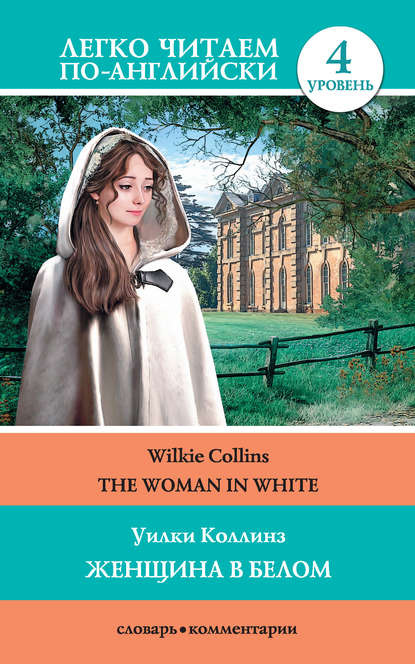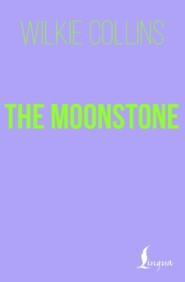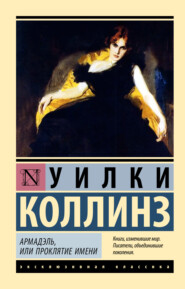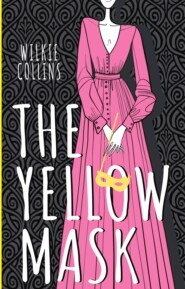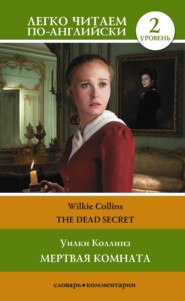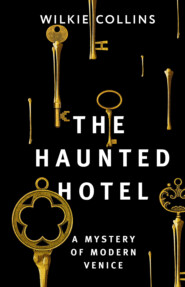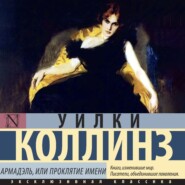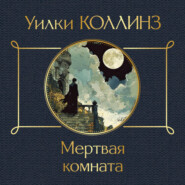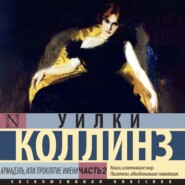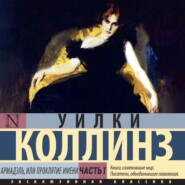По всем вопросам обращайтесь на: info@litportal.ru
(©) 2003-2025.
✖
The Woman in White / Женщина в белом
Настройки чтения
Размер шрифта
Высота строк
Поля
Miss Halcombe’s face expressed vivid interest and astonishment, but nothing more. She shook her head. She looked interested but also astonished. Clearly she had no idea who the woman in white could be.
“Whoever she may be,” I continued, “the woman knew that Mrs. Fairlie and her husband were both dead; and she spoke of Miss Fairlie as if they had known each other when they were children. She told me she came from Hampshire.”
“You had better not speak of it yet to Mr. Fairlie, or to my sister. They are rather nervous and sensitive. When my mother came here, after her second marriage, she certainly established the village school just as it exists at the present time. But the old teachers are all dead, or gone elsewhere. The only other alternative I can think of – ”
At this point we were interrupted by the entrance of the servant, with a message from Mr. Fairlie, telling that he would be glad to see me, as soon as I had done breakfast.
“Wait in the hall,” said Miss Halcombe, answering the servant for me, in her quick, ready way. “Mr. Hartright will come out directly. I was about to say,” she went on, addressing me again, “that my sister and I have a large collection of my mother’s letters, addressed to my father and to hers. In the absence of any other means of getting information, I will pass the morning in looking over my mother’s correspondence with Mr. Fairlie. I hope to discover something when we meet again. The luncheon hour is two, Mr. Hartright. I shall have the pleasure of introducing you to my sister by that time, and we will occupy the afternoon in driving round the neighbourhood and showing you all our pet points of view. Till two o’clock, then, farewell.”
As soon as she had left me, I turned my steps towards the hall, and followed the servant, on my way, for the first time, to the presence of Mr. Fairlie.
We arranged to meet later and I went upstairs to Mr Fairlie’s room. The furniture was the perfection of luxury and beauty; the table in the centre was full of books, elegant conveniences for writing, and beautiful flowers; the second table, near the window, was covered with all the necessary materials for mounting water-colour drawings. It was the prettiest and most luxurious little sitting-room I had ever seen; and I admired it with the warmest enthusiasm.
The servant silently opened the door for me to go out into the passage. We turned a corner, and entered a long second passage. The servant disclosed two curtains of pale sea-green silk hanging before us; raised one of them noiselessly; softly uttered the words, “Mr. Hartright,” and left me.
I found myself in a large, lofty room, with a magnificent carved ceiling, and with a carpet over the floor, so thick and soft that it felt like piles of velvet under my feet. One side of the room was occupied by a long bookcase of some rare wood that was quite new to me. Mr. Fairlie was over fifty and under sixty years old. His beardless face was thin, worn, and pale, but not wrinkled; his nose was high and hooked; his eyes were large; his hair was scanty. He was dressed in a dark frock-coat.[21 - frock-coat – сюртук] Two rings adorned his white delicate hands.
“I am very glad to see you at Limmeridge, Mr. Hartright,” he said in a croaking voice. “Pray sit down. And don’t trouble yourself to move the chair, please. Movement of any kind is painful to me. My nerves are very delicate, you know. Have you got everything you want? Do you like your room?
“Everything is fine,” I started to say, but to my surprise Mr. Fairlie stopped me.
“Pray excuse me. But could you speak in a lower voice? Loud sound of any kind is torture to me. You will pardon an invalid? Yes. My nerves are very delicate. Have you met Marian and Laura?”
“I’ve only met Marian,” I said.
“I beg your pardon,” interposed Mr. Fairlie. “Do you mind my closing my eyes while you speak? Even this light is too much for them. Yes?”
“The only point, Mr. Fairlie, that remains to be discussed,” I said, “refers, I think, to the question: what kind of art would you like me to teach the two young ladies?”
“Ah! just so,” said Mr. Fairlie. “I’m afraid I don’t feel strong enough to discuss that,” said Mr. Fairlie. “You must ask Marian and Laura. Mr Hartright, it’s been a real pleasure meeting you, but now I’m getting tired. Please don’t bang the door on your way out. So kind of you.”
When the sea-green curtains were closed, and when the two doors were shut behind me, I stopped for a moment in the little circular hall beyond, and drew a long, luxurious breath of relief. It was a great relief to get out of Mr Fairlie’s room. It was like coming to the surface of the water after deep diving, to find myself once more on the outside of Mr. Fairlie’s room.
The remaining hours of the morning passed away pleasantly enough, in looking over the drawings, arranging them in sets, trimming their ragged edges, and accomplishing the other necessary preparations.
At two o’clock I descended again to the breakfast-room, a little anxiously. My introduction to Miss Fairlie was now close at hand.
When I entered the room, I found Miss Halcombe seated at the luncheon-table.
“How did you find Mr. Fairlie?” inquired Miss Halcombe. “Was he particularly nervous this morning, Mr. Hartright? I see in your face[22 - I see in your face – я вижу по вашему лицу] that he was particularly nervous; and I ask no more. Laura is in the garden, do come and meet her.”
We went out while she was speaking, and approached a pretty summer-house, built of wood, in the form of a miniature Swiss chalet.[23 - in the form of a miniature Swiss chalet – домик в швейцарском стиле] I saw a young lady sitting inside at a table, drawing, with her head bent closely over her work. She was wearing a pretty summer dress and had golden hair. This was Miss Fairlie.
How can I describe her? The water-colour drawing that I made of Laura Fairlie lies on my desk while I write. I look at it. Does my poor portrait of her, my patient labour of long and happy days, show me all her beauty? A fair, delicate girl, in a pretty light dress.
“There’s Laura,” whispered Miss Halcombe. Then more loudly she said, “Look there, Mr. Hartright,” said Miss Halcombe, pointing to the sketch-book on the table. “The moment Laura hears that you are in the house, she takes her sketch-book, and begins to draw!”
At once the young lady looked up from her drawing and her eyes met mine. She had a lovely face and the most beautiful smile in the world. But there was something else about her too – something that troubled and disturbed me. Had I met her before? I didn’t think so. But she reminded me of somebody I knew. Miss Fairlie laughed.
“I must say that I like to draw, but I am conscious of my ignorance. Now I know you are here, Mr. Hartright. I hope Mr. Hartright will pay me no compliments,” said Miss Fairlie, as we all left the summer-house.
“But why?” I asked.
“Because I shall believe all that you say to me,” she answered simply.
In those few words she unconsciously gave me the key to her whole character. Then I realised. Impossible as it may seem, Laura Fairlie looked very much like the woman in white!
We had been out nearly three hours, when the carriage again passed through the gates of Limmeridge House. On our way back I offered the ladies to choose the view which they were to sketch, under my instructions, on the afternoon of the next day.
When the dinner was over we returned together to the drawing-room. The drawing-room was on the ground-floor, and was of the same shape and size as the breakfast-room. At my request[24 - at my request – по моей просьбе] Miss Fairlie placed herself at the piano. How vividly that peaceful home-picture of the drawing-room comes back to me while I write! From the place where I sat I could see Miss Halcombe’s graceful figure, half of it in soft light, half in mysterious shadow.
Miss Fairlie was playing, Miss Halcombe was reading – till the light failed us. For half an hour more the music still went on. We went out to admire the night.
Then I heard Miss Halcombe’s voice – low, eager, and altered from its natural lively tone – pronounce my name.
“Mr. Hartright,” she said, “will you come here for a minute? I want to speak to you.”
I entered the room again immediately. Miss Halcombe was sitting with the letters scattered on her lap. On the side nearest to the terrace there stood a low sofa, on which I took my place. In this position I was not far from the glass doors, and I could see Miss Fairlie plainly.
“I’ve found out something interesting,” said Miss Halcombe. “I’ve been reading my mother’s letters and in one of them she mentions a little girl called Anne Catherick,[25 - Anne Catherick – Анна Катерик] who was visiting Limmeridge one summer with her mother. My mother had set up a school for the village children and while Anne was in Limmeridge, she went to this school. My mother writes about Anne Catherick with great affection.”
Miss Halcombe paused, and looked at me across the piano.
“Did the forlorn woman whom you met in the road seem young?” she asked. “Young enough to be two – or three-and-twenty?”
“Yes, Miss Halcombe, as young as that.”
“And she was strangely dressed, from head to foot, all in white?”
“All in white.”
“All in white?” Miss Halcombe repeated. “The most important sentences in the letter, Mr. Hartright, are those at the end, which I will read to you immediately. The doctor may have been wrong when he discovered the child’s defects of intellect, and predicted that she would ‘grow out of them.’ She may never have grown out of them.”
I said a few words in answer – I hardly know what. All my attention was concentrated on the white gleam of Miss Fairlie’s dress.
“Listen to the last sentences of the letter,” said Miss Halcombe. “I think they will surprise you.”
As she raised the letter to the light of the candle, Miss Fairlie turned from the balustrade, looked doubtfully up and down the terrace, and then stopped, facing us.
“Anne told my mother that she would always wear white to remember her by, as my mother’s favourite colour was white.”
“So it’s quite possible that the woman in white is Anne Catherick,” I said slowly. “What happened to Anne?”
“I don’t know,” said Miss Halcombe. “She and her mother left Limmeridge after a few months and never came back. There is no further mention of her in my mother’s letters.”
I looked further. There stood Miss Fairlie, a white figure, alone in the moonlight; in her attitude, in the turn of her head, in her complexion, in the shape of her face, the living image of the woman in white!
During the following weeks, I experienced some of the happiest and most peaceful moments in my life. Every afternoon I went with Miss Halcombe, or Marian as I called her, and Laura into the countryside to draw and paint.
“Whoever she may be,” I continued, “the woman knew that Mrs. Fairlie and her husband were both dead; and she spoke of Miss Fairlie as if they had known each other when they were children. She told me she came from Hampshire.”
“You had better not speak of it yet to Mr. Fairlie, or to my sister. They are rather nervous and sensitive. When my mother came here, after her second marriage, she certainly established the village school just as it exists at the present time. But the old teachers are all dead, or gone elsewhere. The only other alternative I can think of – ”
At this point we were interrupted by the entrance of the servant, with a message from Mr. Fairlie, telling that he would be glad to see me, as soon as I had done breakfast.
“Wait in the hall,” said Miss Halcombe, answering the servant for me, in her quick, ready way. “Mr. Hartright will come out directly. I was about to say,” she went on, addressing me again, “that my sister and I have a large collection of my mother’s letters, addressed to my father and to hers. In the absence of any other means of getting information, I will pass the morning in looking over my mother’s correspondence with Mr. Fairlie. I hope to discover something when we meet again. The luncheon hour is two, Mr. Hartright. I shall have the pleasure of introducing you to my sister by that time, and we will occupy the afternoon in driving round the neighbourhood and showing you all our pet points of view. Till two o’clock, then, farewell.”
As soon as she had left me, I turned my steps towards the hall, and followed the servant, on my way, for the first time, to the presence of Mr. Fairlie.
We arranged to meet later and I went upstairs to Mr Fairlie’s room. The furniture was the perfection of luxury and beauty; the table in the centre was full of books, elegant conveniences for writing, and beautiful flowers; the second table, near the window, was covered with all the necessary materials for mounting water-colour drawings. It was the prettiest and most luxurious little sitting-room I had ever seen; and I admired it with the warmest enthusiasm.
The servant silently opened the door for me to go out into the passage. We turned a corner, and entered a long second passage. The servant disclosed two curtains of pale sea-green silk hanging before us; raised one of them noiselessly; softly uttered the words, “Mr. Hartright,” and left me.
I found myself in a large, lofty room, with a magnificent carved ceiling, and with a carpet over the floor, so thick and soft that it felt like piles of velvet under my feet. One side of the room was occupied by a long bookcase of some rare wood that was quite new to me. Mr. Fairlie was over fifty and under sixty years old. His beardless face was thin, worn, and pale, but not wrinkled; his nose was high and hooked; his eyes were large; his hair was scanty. He was dressed in a dark frock-coat.[21 - frock-coat – сюртук] Two rings adorned his white delicate hands.
“I am very glad to see you at Limmeridge, Mr. Hartright,” he said in a croaking voice. “Pray sit down. And don’t trouble yourself to move the chair, please. Movement of any kind is painful to me. My nerves are very delicate, you know. Have you got everything you want? Do you like your room?
“Everything is fine,” I started to say, but to my surprise Mr. Fairlie stopped me.
“Pray excuse me. But could you speak in a lower voice? Loud sound of any kind is torture to me. You will pardon an invalid? Yes. My nerves are very delicate. Have you met Marian and Laura?”
“I’ve only met Marian,” I said.
“I beg your pardon,” interposed Mr. Fairlie. “Do you mind my closing my eyes while you speak? Even this light is too much for them. Yes?”
“The only point, Mr. Fairlie, that remains to be discussed,” I said, “refers, I think, to the question: what kind of art would you like me to teach the two young ladies?”
“Ah! just so,” said Mr. Fairlie. “I’m afraid I don’t feel strong enough to discuss that,” said Mr. Fairlie. “You must ask Marian and Laura. Mr Hartright, it’s been a real pleasure meeting you, but now I’m getting tired. Please don’t bang the door on your way out. So kind of you.”
When the sea-green curtains were closed, and when the two doors were shut behind me, I stopped for a moment in the little circular hall beyond, and drew a long, luxurious breath of relief. It was a great relief to get out of Mr Fairlie’s room. It was like coming to the surface of the water after deep diving, to find myself once more on the outside of Mr. Fairlie’s room.
The remaining hours of the morning passed away pleasantly enough, in looking over the drawings, arranging them in sets, trimming their ragged edges, and accomplishing the other necessary preparations.
At two o’clock I descended again to the breakfast-room, a little anxiously. My introduction to Miss Fairlie was now close at hand.
When I entered the room, I found Miss Halcombe seated at the luncheon-table.
“How did you find Mr. Fairlie?” inquired Miss Halcombe. “Was he particularly nervous this morning, Mr. Hartright? I see in your face[22 - I see in your face – я вижу по вашему лицу] that he was particularly nervous; and I ask no more. Laura is in the garden, do come and meet her.”
We went out while she was speaking, and approached a pretty summer-house, built of wood, in the form of a miniature Swiss chalet.[23 - in the form of a miniature Swiss chalet – домик в швейцарском стиле] I saw a young lady sitting inside at a table, drawing, with her head bent closely over her work. She was wearing a pretty summer dress and had golden hair. This was Miss Fairlie.
How can I describe her? The water-colour drawing that I made of Laura Fairlie lies on my desk while I write. I look at it. Does my poor portrait of her, my patient labour of long and happy days, show me all her beauty? A fair, delicate girl, in a pretty light dress.
“There’s Laura,” whispered Miss Halcombe. Then more loudly she said, “Look there, Mr. Hartright,” said Miss Halcombe, pointing to the sketch-book on the table. “The moment Laura hears that you are in the house, she takes her sketch-book, and begins to draw!”
At once the young lady looked up from her drawing and her eyes met mine. She had a lovely face and the most beautiful smile in the world. But there was something else about her too – something that troubled and disturbed me. Had I met her before? I didn’t think so. But she reminded me of somebody I knew. Miss Fairlie laughed.
“I must say that I like to draw, but I am conscious of my ignorance. Now I know you are here, Mr. Hartright. I hope Mr. Hartright will pay me no compliments,” said Miss Fairlie, as we all left the summer-house.
“But why?” I asked.
“Because I shall believe all that you say to me,” she answered simply.
In those few words she unconsciously gave me the key to her whole character. Then I realised. Impossible as it may seem, Laura Fairlie looked very much like the woman in white!
We had been out nearly three hours, when the carriage again passed through the gates of Limmeridge House. On our way back I offered the ladies to choose the view which they were to sketch, under my instructions, on the afternoon of the next day.
When the dinner was over we returned together to the drawing-room. The drawing-room was on the ground-floor, and was of the same shape and size as the breakfast-room. At my request[24 - at my request – по моей просьбе] Miss Fairlie placed herself at the piano. How vividly that peaceful home-picture of the drawing-room comes back to me while I write! From the place where I sat I could see Miss Halcombe’s graceful figure, half of it in soft light, half in mysterious shadow.
Miss Fairlie was playing, Miss Halcombe was reading – till the light failed us. For half an hour more the music still went on. We went out to admire the night.
Then I heard Miss Halcombe’s voice – low, eager, and altered from its natural lively tone – pronounce my name.
“Mr. Hartright,” she said, “will you come here for a minute? I want to speak to you.”
I entered the room again immediately. Miss Halcombe was sitting with the letters scattered on her lap. On the side nearest to the terrace there stood a low sofa, on which I took my place. In this position I was not far from the glass doors, and I could see Miss Fairlie plainly.
“I’ve found out something interesting,” said Miss Halcombe. “I’ve been reading my mother’s letters and in one of them she mentions a little girl called Anne Catherick,[25 - Anne Catherick – Анна Катерик] who was visiting Limmeridge one summer with her mother. My mother had set up a school for the village children and while Anne was in Limmeridge, she went to this school. My mother writes about Anne Catherick with great affection.”
Miss Halcombe paused, and looked at me across the piano.
“Did the forlorn woman whom you met in the road seem young?” she asked. “Young enough to be two – or three-and-twenty?”
“Yes, Miss Halcombe, as young as that.”
“And she was strangely dressed, from head to foot, all in white?”
“All in white.”
“All in white?” Miss Halcombe repeated. “The most important sentences in the letter, Mr. Hartright, are those at the end, which I will read to you immediately. The doctor may have been wrong when he discovered the child’s defects of intellect, and predicted that she would ‘grow out of them.’ She may never have grown out of them.”
I said a few words in answer – I hardly know what. All my attention was concentrated on the white gleam of Miss Fairlie’s dress.
“Listen to the last sentences of the letter,” said Miss Halcombe. “I think they will surprise you.”
As she raised the letter to the light of the candle, Miss Fairlie turned from the balustrade, looked doubtfully up and down the terrace, and then stopped, facing us.
“Anne told my mother that she would always wear white to remember her by, as my mother’s favourite colour was white.”
“So it’s quite possible that the woman in white is Anne Catherick,” I said slowly. “What happened to Anne?”
“I don’t know,” said Miss Halcombe. “She and her mother left Limmeridge after a few months and never came back. There is no further mention of her in my mother’s letters.”
I looked further. There stood Miss Fairlie, a white figure, alone in the moonlight; in her attitude, in the turn of her head, in her complexion, in the shape of her face, the living image of the woman in white!
During the following weeks, I experienced some of the happiest and most peaceful moments in my life. Every afternoon I went with Miss Halcombe, or Marian as I called her, and Laura into the countryside to draw and paint.





